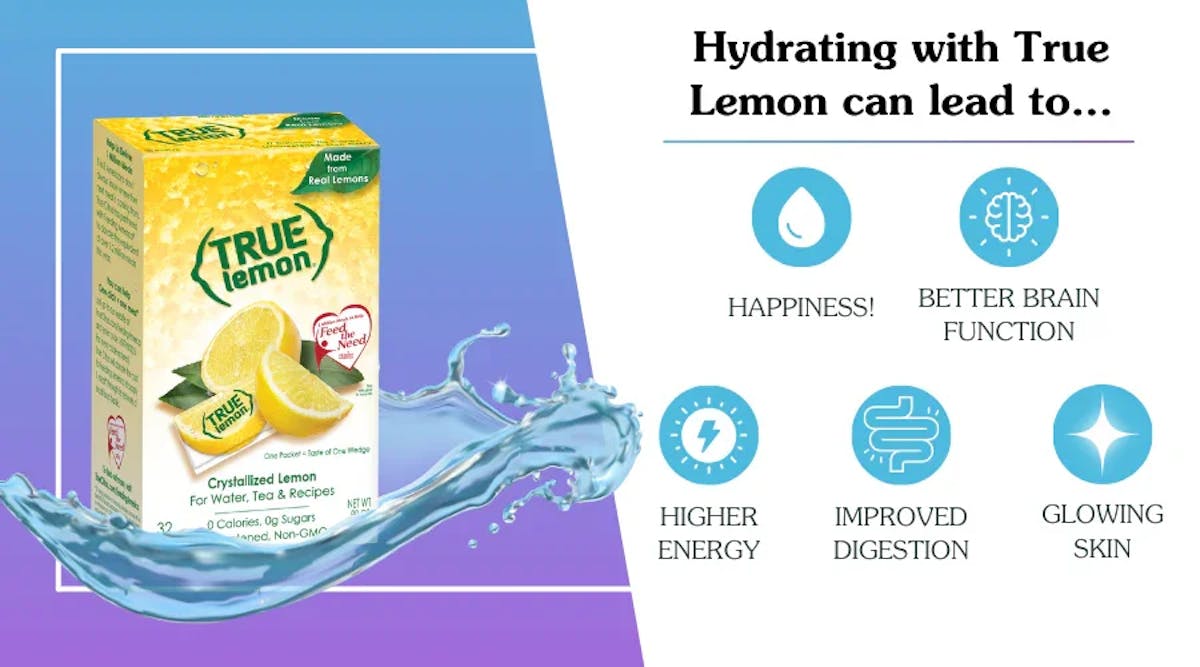
Dehydration & Anxiety: How Water is Wellness
Parched lips and a racing heart: could your dehydration be the hidden trigger behind your anxiety? Yes, it can! Dehydration can cause anxiety because when your body doesn't have enough water, it leads to less blood flow and oxygen to your brain. This can mess with your brain's ability to function properly and make you feel stressed and anxious.
Grab a glass of water and see how staying hydrated can help keep those anxiety symptoms at bay!
The Science Behind Dehydration Causing Anxiety
When you’re dehydrated, your brain doesn’t get enough blood flow and oxygen, which makes it harder for your brain to function properly. This can lead to feelings of stress and anxiety because your brain struggles to work as it should. Additionally, dehydration can disrupt the balance of important chemicals and hormones in your body that control your mood. When these chemicals are out of balance, it can make you feel more anxious and stressed, leading to mood swings and difficulty managing emotions.
Ideal Daily Water Intake
So, how much water should you drink each day to stay hydrated and keep anxiety at bay? Experts from the Mayo Clinic recommend that men drink about 15.5 cups of water a day while women need at least 11.5 cups a day. It’s important to note, however, that everyone is different. To help you determine your personal hydration needs, check out our hydration calculator and always remember, listen to your body!

The Impact of Dehydration on Physical Health
Disclaimer: Always consult your healthcare provider for medical advice when dealing with extreme signs of dehydration, anxiety disorders, or any other medical conditions.
When your body is dehydrated, it doesn’t just affect your mental well-being, it impacts your entire body. Besides the typical symptoms of anxiety, here are some other physical symptoms of what happens when you don’t get enough water:
- Dry mouth: Your mouth feels dry and sticky because there's not enough saliva.
- Headaches: Lack of water can lead to painful headaches.
- Dizziness: Dehydration can make you feel lightheaded or dizzy.
- Fatigue: You might feel unusually tired or sluggish.
- Dark urine: Your urine will be darker in color, which is a sign you need more water.
- Muscle cramps: Without enough water, your muscles can cramp up and feel sore.
- Increased heart rate: Your heart has to work harder, which can lead to heart palpitations or an extra heartbeat.
- Irritability: Dehydration can make you feel grumpy and irritable.
Staying hydrated helps your body function properly, so make sure to drink plenty of water throughout the day!
Heart Rate & Blood Pressure
Dehydration decreases blood volume, making your heart work harder to pump blood, which can lead to increased heart rate and blood pressure. When there isn't enough fluid in your body, your blood becomes thicker and harder to move through your veins. This makes your heart pump faster and can cause an irregular heartbeat or even heart palpitations. Over time, this extra strain can lead to higher blood pressure and put your cardiovascular health at risk.
Muscle Performance
Lack of water in the body can cause muscle twitches, cramps, weakness, and fatigue, affecting physical performance and coordination. When you’re dehydrated, your muscles don’t receive the necessary electrolytes they need to function properly. As a side effect, this can lead to painful cramps, especially during physical activities. Additionally, dehydration reduces your muscles' ability to contract efficiently, causing weakness and fatigue. This not only impacts athletic performance but can also affect everyday activities, making you feel tired and less coordinated.
Digestive System
Dehydration can lead to constipation and other digestive issues because the body needs water to digest food and eliminate waste properly. When you're dehydrated, your intestines absorb more water from the food you eat, making it harder to pass stools and leading to constipation. Moreover, water is essential for producing digestive juices and keeping your digestive tract running smoothly. Without enough water, you might experience bloating, discomfort, and other digestive problems, which can further affect your overall health and well-being.

Happiness Linked to Hydration
Staying hydrated doesn't just keep your body functioning smoothly—it can also boost your mental health! According to new research, drinking more water is linked to increased happiness. Researchers found that people who drank more water reported higher levels of positive emotions and life satisfaction. Proper hydration helps maintain optimal brain function, which can improve mood and reduce feelings of anxiety and depression.
Other Benefits of Staying Hydrated:
- Enhanced Cognitive Function: Staying hydrated helps you think more clearly and stay focused.
- Improved Physical Performance: Fluid intake is crucial for muscle function and endurance.
- Better Digestion: Adequate hydration levels aid in digestion and prevent constipation.
- Healthy Skin: Drinking water keeps your skin hydrated and can improve its appearance.
- Regulated Body Temperature: Water helps maintain your body's temperature, especially in hot weather or during exercise.
Remember, drinking enough water each day can keep you feeling happy, healthy, and ready to take on the world!

Lifestyle Factors to Reduce Anxiety
Making healthy lifestyle changes can significantly reduce anxiety and other health conditions. Here are some key factors to consider:
- Drinking more water: Staying hydrated helps maintain proper body and brain function, reducing stress and symptoms of anxiety. Take a water bottle with you on the go, drink water before, during, and after meals, and set reminders for yourself throughout the day.
- Balanced diet: Of course, healthy habits like eating nutritious foods and consuming less alcohol help support overall health. A balanced diet rich in fruits, vegetables, lean proteins, and whole grains provides essential nutrients that stabilize mood and energy levels.
- Regular exercise: Physical activity releases endorphins, the body's natural mood lifters. Exercise can improve mood, reduce anxiety, and boost overall mental well-being. Aim for at least 30 minutes of moderate exercise most days of the week.
- Touch grass: Getting away from your phone and computer to get fresh air and sunlight is an easy way to reduce anxious feelings.
- Relaxation techniques: Practices such as deep breathing, meditation, and yoga can calm the mind and reduce stress levels. These techniques promote relaxation and can be easily incorporated into your daily routine to help manage anxiety.
For those who struggle to drink plain water, True Lemon is a great solution! True Lemon offers a delicious way to stay hydrated with gluten-free, non-GMO ingredients, making it easier and more enjoyable to drink enough water throughout the day.
True Lemon: Your Partner in Happy Hydration
Hydration is key to reducing anxiety and maintaining overall health. Proper hydration supports brain function, mood stability, and physical health, all of which are essential for a stress-free life. True Lemon makes it easy with our range of low-calorie, non-GMO unsweetened packets and sweetened mixes that helps thousands of customers stay hydrated and happy. Our simple wedge replacements and delicious drink mix flavors make drinking water a treat, ensuring you get the hydration you need without the artificial sweeteners.
True Lemon's products are not only tasty but also convenient. With flavors like True Lemon, True Lime, and more, staying hydrated has never been easier or more enjoyable. These drink mixes are perfect for those who struggle to drink plain water, offering a refreshing and flavorful alternative.
Ready to make hydration fun and tasty? You can find True Lemon in a grocery store near you, online, or on Amazon. Stay hydrated, stay happy!
Resources
“Anxiety Disorders.” *Mayo Clinic*, Mayo Foundation for Medical Education and Research, 4 May 2018, www.mayoclinic.org/diseases-conditions/anxiety/symptoms-causes/syc-20350961.
“Dehydration.” *Mayo Clinic*, Mayo Foundation for Medical Education and Research, www.mayoclinic.org/diseases-conditions/dehydration/symptoms-causes/syc-20354086. Accessed 2 July 2024.
Haghighatdoost, Fahimeh, et al. “Drinking Plain Water Is Associated with Decreased Risk of Depression and Anxiety in Adults: Results from a Large Cross-Sectional Study.” *World Journal of Psychiatry*, U.S. National Library of Medicine, 20 Sept. 2018, www.ncbi.nlm.nih.gov/pmc/articles/PMC6147771/.
Swns. “Does Drinking More Water Make You Happier?” *New York Post*, New York Post, 21 Mar. 2024, nypost.com/2024/03/21/lifestyle/does-drinking-more-water-make-you-happier/.
“How Much Water Do You Need to Stay Healthy?” *Mayo Clinic*, Mayo Foundation for Medical Education and Research, 12 Oct. 2022, www.mayoclinic.org/healthy-lifestyle/nutrition-and-healthy-eating/in-depth/water/art-20044256.
Article reviewed 07/22/2024:
Mia Syn
Registered Dietitian, MS, RDN
Mia Syn is a nationally recognized on-air nutrition expert and author. She earned a Master of Science in Human Nutrition from the Institute of Human Nutrition at Columbia University’s College of Physicians and Surgeons and a Bachelor of Science in Nutritional Science Physiology and Metabolism from the University of California, Berkeley before earning her Registered Dietitian Nutritionist (RDN) credential. She has been featured by dozens of major media outlets including Cosmopolitan and SHAPE, and was named one of the top registered dietitians to follow on Instagram by Women’s Health Magazine. You can follow her at @nutritionbymia for daily nutrition tips and easy healthy recipes.
